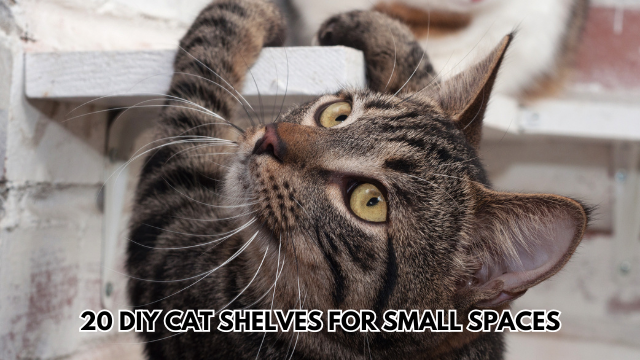According to a survey by the American Pet Products Association, nearly 60% of cat owners are curious about their feline’s solo adventures. What cats do when they’re home alone?
Are they napping all day, throwing secret parties, or plotting to knock over your favorite vase? While we can’t read their minds, we can get a pretty good idea of what goes on behind closed doors.
- What Cats Do When You’re Not Home?
- Do Cats Miss You?
- The Controversy: Leaving Cats Alone
- Should You Monitor Them?
- Practical Tips for Leaving Cats Alone
- Bonus Tip
What Cats Do When You’re Not Home?
Nap Time: The Ultimate Cat Hobby
It’s no secret—cats love to sleep. In fact, cats sleep an average of 12 to 16 hours a day, according to PetMD.
When you’re not home, they’re likely curled up in their favorite spot, conserving energy like the little predators they are.
Unlike humans, cats are crepuscular, meaning they’re most active during dawn and dusk. That’s why they’re often snoozing while you’re at work.
Exploring and Patrolling Their Territory
Even in the safety of your home, cats are natural explorers.
Cat behaviorist Pam Johnson-Bennett stated that cats patrol their territory to make sure everything is in place.
They’ll sniff around, check windows, and even investigate new items you bring home. This helps them feel secure and in control of their environment.
Staring Out the Window
Does your cat love to sit by the window? They’re not just people-watching.
According to International Cat Care, watching birds, squirrels, or even the wind blowing through the trees provides mental stimulation. It’s like kitty TV! Placing a bird feeder outside can enhance their viewing experience.
Practicing Hunting Skills
Even if they’ve never set paw outside, cats are born hunters. In your absence, they might stalk and pounce on toys, shadows, or even dust particles.
Based on expert opinions from cat behaviorists, this imaginary hunting helps them stay sharp and fulfill their instinctual needs.

Playing with Toys (or Random Objects)
Left some socks on the floor? That’s a toy now. Cats are known for their playful nature.
The Humane Society suggests that play helps cats relieve stress and exercise their hunting instincts. Make sure to leave out safe toys to keep them entertained.
Getting Into Mischief
Let’s be real—cats are curious troublemakers. Whether it’s knocking items off counters or unrolling toilet paper, they love to explore boundaries.
According to PetMD, this behavior is a sign of intelligence and curiosity. They’re not being “naughty,” just inquisitive.
Grooming and Self-Care
Cats are meticulous groomers, spending up to 30% of their awake time licking themselves.
This isn’t just about cleanliness; grooming also helps them relax. As stated by Petfinder, grooming releases endorphins, making it a calming activity.
Vocal Practice: Meowing and Chirping
You might come home to a cat who “talks” more than usual. This could be because they’ve been practicing their vocalizations while you were away.
Cats meow to communicate with humans, and sometimes they just like to hear their own voice. According to Animal Planet, cats also chirp when they see birds or other prey, practicing their hunting sounds.
Bonding with Other Pets
If you have more than one pet, they’re likely hanging out, playing, or even napping together. ASPCA reported that cats can form close bonds with other animals.
They may engage in play-fighting, grooming each other, or simply lounging together.
Eating and Drinking
Cats are grazers. Unlike dogs, they don’t typically eat all their food at once.
When you’re not home, they might snack periodically. Make sure to leave fresh water out as well, as hydration is crucial for their health.
Using the Litter Box
It may not be glamorous, but using the litter box is a part of their daily routine.
Regular usage indicates that your cat feels safe and comfortable at home. Any changes, like avoiding the litter box, could signal stress or health issues.
Do Cats Miss You?
Here’s a question every cat owner wonders about. Do they miss you?
According to a study by PLOS ONE, cats do form attachments to their owners, but they express it differently than dogs.
They might not sulk by the door, but they do notice your absence.

The Controversy: Leaving Cats Alone
Leaving your cat home alone is a topic that stirs up quite a debate among pet owners and experts alike.
While cats are often seen as independent creatures, the question remains: how long is too long to leave them by themselves?
A survey by the American Pet Products Association found that 60% of cat owners worry about their feline friends when they’re away.
This concern raises important questions about our pets’ well-being and the responsibilities we hold as their caregivers.
The Independent Nature of Cats
Cats have a reputation for being solitary and self-sufficient. Unlike dogs, they don’t require daily walks and can manage their grooming.
This independence leads many to believe that cats are perfectly fine on their own for extended periods.
However, this perception doesn’t capture the full picture of a cat’s emotional and physical needs.
Emotional Needs and Social Interaction
Despite their aloof demeanor, cats are social animals. They form strong bonds with their human companions and can experience loneliness and anxiety when left alone for too long.
According to PetMD, cats can become bored and lonely when left alone for extended periods, which can lead to behavioral issues.
This insight challenges the notion that cats are content with prolonged solitude.
Potential Risks of Leaving Cats Alone
Leaving a cat alone isn’t just an emotional concern; there are practical risks involved.
Cats are curious by nature, and without supervision, they might get into dangerous situations. They could ingest toxic plants, chew on electrical cords, or get trapped in small spaces.
Additionally, if a medical emergency arises, the absence of immediate care can have serious consequences.
Expert Recommendations on Time Limits
So, how long is it acceptable to leave a cat alone?
PetMD suggests that healthy adult cats can typically be left alone for eight to 12 hours. However, it’s essential to consider individual factors such as the cat’s health, age, and personality.
Kittens, senior cats, or those with medical conditions may require more frequent attention.
Balancing Independence and Care
The debate centers on balancing a cat’s independent nature with their need for social interaction and safety.
While some argue that cats are perfectly fine alone for days, others emphasize the potential risks and emotional distress.
It’s crucial to assess your cat’s specific needs and consider expert advice when making decisions about leaving them alone.
In conclusion, while cats are independent creatures, they still require attention, care, and social interaction. Understanding the potential risks and taking proactive measures can ensure your feline friend remains happy and healthy, even in your absence.
Should You Monitor Them?
Curious about what exactly they’re doing? Pet cameras are a great way to keep an eye on your cat while you’re away.
According to TechRadar, pet cameras with two-way audio allow you to talk to your cat, which can be comforting for both of you.
Practical Tips for Leaving Cats Alone
If you need to leave your cat alone, here are some practical steps to ensure their well-being:
- Provide Entertainment: Leave toys, puzzle feeders, or a perch by the window to keep them mentally stimulated.
- Ensure Fresh Water and Food: Use automatic feeders and water fountains to maintain a consistent supply.
- Safe Environment: Remove hazardous items and secure loose cords to prevent accidents.
- Regular Check-ins: Arrange for a friend, neighbor, or professional pet sitter to visit, especially if you’ll be away for more than 24 hours.
Bonus Tip: Gradual Alone Time
If your cat isn’t used to being alone, gradually increase their alone time. Start with short periods and slowly extend them, ensuring they have positive experiences during these times.
This approach can help reduce anxiety and make them more comfortable when you need to be away.
Read: Easy 10 DIY Cat Toys You Can Make Today
Cats are complex creatures who do more than just nap all day. They explore, play, and even think about you when you’re not around.
So the next time you leave the house, rest assured—your cat’s got a busy schedule. Who knew that behind those sleepy eyes lies a world of adventure and curiosity? 😻
Watch Videos about Cat & Kitten Care on Youtube @naowthecat